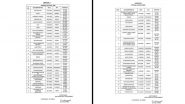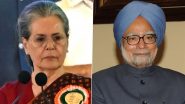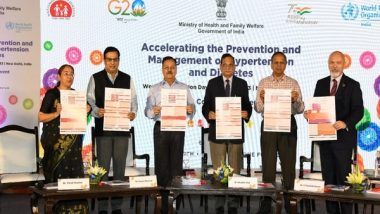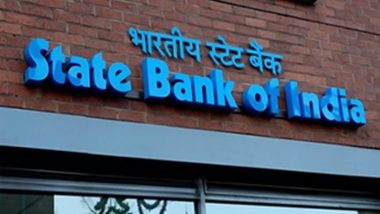New Delhi, May 17: To mark World Hypertension Day, Union Health Ministry on Wednesday launched an ambitious initiative of screening and putting 75 million people with hypertension and diabetes on Standard Care by 2025. The '75/25' initiative was announced by Dr VK Paul, Member (Health), NITI Aayog at the G20 co-branded event titled "Accelerating the Prevention and Management of Hypertension and Diabetes", organized by Union Health Ministry and World Health Organization (WHO) as part of World Hypertension Day.
According to an official release, the Outcome Budget document of Union Budget 2023-2024 has for the first time introduced hypertension and diabetes treatment as output indicators reflecting the government's commitment to scale-up hypertension and diabetes coverage services.
Highlighting the innovative '75/25' scheme, Dr V K Paul stated that this will be the largest expansion of Non-Communicable Diseases (NCD) in primary healthcare programs in the world with a community-based approach starting at the primary healthcare level. "This indicates clear resolve of the government to address NCDs by allocating resources, capacity enhancement, mobilisation and multi-sectoral collaboration", he said. Merck Foundation Marks World Hypertension Day 2023 and Release Mark's Pressure, a Children Storybook to Raise Awareness About Hypertension in Africa.
"Under the leadership of Prime Minister Narendra Modi, India is determined to become a developed nation in the next 25 years in the Amrit Kaal. Towards this goal, India is making efforts to achieve results in social indicators like life expectancy, maternal mortality rate, and NCDs at par with developed nations", he stressed.
Dr Paul mentioned that the battle against NCDs has to be fought through the primary healthcare level and pointed out that India has created a platform to fight the menace through the creation of more than 1.5 lakh Health and Welfare Centres (HWC) and operationalization of telemedicine and digital health services.
To accelerate the prevention and management of Hypertension, Dr V K Paul urged State teams to adhere to all SOPs especially the screening SOPs correctly at the grassroots since screening is the bedrock of successful management of any disease.
However, he noted that only screening is not enough. Detection should lead to outcomes. He, therefore, urged all stakeholders to ensure that at least 80% of the diagnosed people are under treatment.
During his speech, the need for private sector engagement in this effort and the contribution of the academic and research sectors in creating models and different building blocks for achieving the ambitious targets were also emphasized.
Dr Paul also emphasized that greater effort should be put into prevention which includes lifestyle changes through eating good food, exercising and other wellness practices. High Blood Pressure: Scaling Up of Efforts Needed to Prevent, Detect, Control Hypertension, Says WHO.
He highlighted the need for Jan Andolan to make this effort more visible through community participation and the need for countries to work together and share each other's successes in the spirit of "One Earth, One Health".
Congratulating India on this stupendous initiative, Dr Tedros Adhanom Ghebreyesus, Director General, WHO said, "Indian Government's ambitious target of reaching 75 million people with Hypertension under standard care in primary healthcare by 2025 is the largest cover of NCDs in the world for primary healthcare".
In her virtual address, Dr Poonam Khetrapal Singh, Director, WHO-SEARO also congratulated the Govt of India for launching ambitious healthcare initiatives.
She applauded India's commitment to primary healthcare and highlighted the operationalization of more than 1.5 lakh Ayushman Bharat Health and Wellness Centres as a significant achievement.
She also urged countries in the Southeast Asia region to create a new and effective regional roadmap to accelerate NCD control. While, Union Health Secretary Rajesh Bhushan highlighted the interplay between economy, societal forces and epidemiological forces.
He stated that with over 7% economic growth in the last two decades, the average life expectancy of people in India has risen significantly to around 70 today. "Lifestyle of a large section of the population has become more sedentary than before", he said.
The Union Health Secretary noted that the solution to the problem of NCDs lies in a societal approach where awareness, prevention, health promotion and wellness are looked at in an integrated manner. He also stressed "on the need for inter-sectoral efforts and collaboration of public and private sectors to address the growing burden of NCDs in the country".
According to an official release, in addition to the 75/25 initiative, the Shashakt Portal was launched for the training of 40,000 Primary Health Care Medical Officers on Standard Treatment Workflow for NCDs initiated to realize healthcare services closer to the community.
The statement further said that the revised operational guidelines of the National Programme for Prevention and Control of Non-Communicable Diseases (NP-NCD) were also released with the aim of much wider coverage.
"The programme is now providing services for Chronic Obstructive Pulmonary Disease (COPD) and Asthma, Chronic Kidney Disease (CKD) and Non-Alcoholic Fatty Liver Diseases NAFLD), ST Elevation of Myocardial Infarction (STEMI) apart from Hypertension, Diabetes and three common Cancers including Oral, Breast and Cervical", the statement read.
Vishal Chauhan, Joint Secretary, Health Ministry, Dr Roderico H. Ofrin, WHO Representative to India, G-20 representatives, participants from WHO-SEARO countries, international partners working on hypertension and diabetes from WHO, UN and other organizations, senior state officials from states, national NCD partners and senior officials from the Union Government were present in the event.
(This is an unedited and auto-generated story from Syndicated News feed, LatestLY Staff may not have modified or edited the content body)













 Quickly
Quickly




















